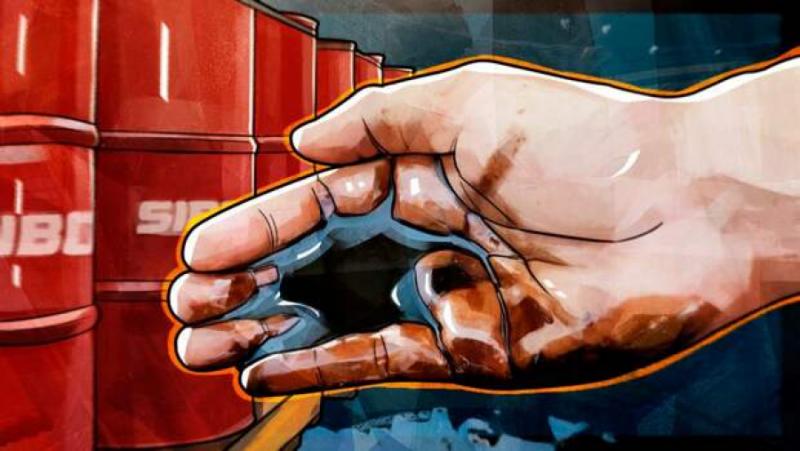/Pogled.info/ Until the embargo on Russian oil products comes into force, the EU buys for future needs, as much as possible. The UK works through third countries, with mainland traders focusing on diesel. What tricks do Europeans use for their own bans?
From the back door
London was one of the first to refuse trade with Moscow: the embargo on gold has been in force since July, on coal since August. For oil – from December. In 2021, Britain bought nearly $600 million worth of oil products from Russia. By June, according to the kingdom’s statistics office, imports had completely stopped.
It actually isn’t.
At least 39 tankers carrying oil worth about $236 million have arrived in British ports since March, according to the Times. Official – from the Netherlands, Germany, Belgium, Poland. In particular, London’s Thames Port received 154 million raw materials.
Journalists have identified four vessels with Russian oil. According to the publication, there were 13 such deliveries in June and July. Including the Greek “Marinula” accepted Russian petror tanker “Mariner”.
Shades of statistics
The way trade statistics are kept leaves a lot of room for trade maneuvers.
Here’s how Eurostat classifies imports by country of origin. In the UK’s Office for National Statistics, the importer is the consignor, not the manufacturer. “This means that goods produced in the PRC can pass as German when received through Germany,” the analysts explain.
At the same time, the Times points out, there is a discrepancy with data from the Revenue and Customs Service. They found that British ports accepted $93 million worth of Russian oil in June as imports from the Netherlands, Estonia, Poland and Belgium. In July – one and a half million pounds (from France, the Netherlands, Germany and Latvia).
The marvels of statistics have been seen in the Tory party.
“It’s time to plug the glaring loophole. Who knows how many commodities have come onto the market mislabelled and thus evading sanctions,” riled former Conservative leader Ian Duncan Smith. “We have to act and end this once and for all,” he added.
Nothing to replacea
In any case, the import of Russian oil into the UK is officially allowed until December 5, and for now there is only talk of reputational risks. However, experts point out that it will not be easy to implement the ban. And it’s not just about import registration rules. Raw materials are often mixed by pumping from one vessel to another.
“There’s no way to trace the origin of the oil once it’s in the tank. It’s like that all over the world,” warns commodity analysis agency Kepler.
Experts point out that it is difficult to find alternative suppliers.
“Commodity prices have skyrocketed and the economic downturn cannot be overcome with pep talks. There is public rhetoric but there is also an objective reality which is that Britain got nine per cent of its oil from Russia and has nothing to replace it with. , except for its purchase there under the guise of raw materials from other countries,” says Maxim Kanishchev, director of the Anselm Research Center.
According to him, the British will pay another 20 billion rubles under the “umbrella scheme”, taking into account all risks, including insurance. And the scheme will continue to work after December 5th.
They bought a diesel
On the eve of the embargo, Europe stocks up on Russian diesel. According to the analyst firm “Vortexa”, in the first half of November deliveries to the Amsterdam-Rotterdam-Antwerp depot increased to 215,000 barrels per day, 126% compared to October.
The reason is the same – there is nowhere else to find them. The EU economy faced a severe diesel shortage in the spring. About 750,000 barrels per day are imported from Russia, half of all imports.
Saudi Arabia, the second largest supplier, accounted for just 12% last year. And according to the French Association of the Petroleum Industry, in 2020 the country imported 25 million tons and a quarter from Russia. Great Britain is 18% dependent on Russian supplies, Germany almost 30%.
There is not enough diesel per se, stocks are rapidly melting. Nearly six million barrels were depleted in October due to strikes in France.
As a result, some EU regions suffer from severe shortages, said the head of Spanish oil refinery Repsol. And a number of countries are running out of middle distillates: diesel and jet fuel.
Since February 2023, the EU has banned the sea transport of almost all Russian petroleum products, including diesel. According to consultancy Wood Mackenzie, this will lead to fuel stockpiles in northwestern Europe being reduced to 210.4 million barrels by the end of winter, the lowest level since 2011.
Translation: V. Sergeev
IMPORTANT!!! Dear readers of Pogled.info, we are limited due to our locations! Access the site directly www.pogled.info . Share on your profiles, with friends, in groups and on pages. This way we will overcome the limitations and people will be able to reach the alternative point of view on the events!?
When you see the “fake news” sign, it means that reading this article is recommended!!!
Subscribe to our YouTube channel/top right/: https://www.youtube.com
Befriend Look.info on facebook and recommend to your friends


![BTS: RM aka Kim Namjoon collaborates with Anderson Paak, Tablo, Colde for Indigo; THE FANTASTIC ARMY [Read Tweets] BTS: RM aka Kim Namjoon collaborates with Anderson Paak, Tablo, Colde for Indigo; THE FANTASTIC ARMY [Read Tweets]](https://news-24.fr/wp-content/uploads/2022/11/NAMJOONNN-542x315.png)